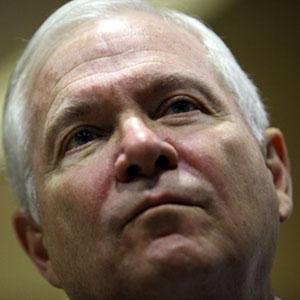 U.S. Defense Secretary Robert M. Gates expressed frustration with Turkey on Friday over its refusal to support a new round of United Nations sanctions against Iran, but he suggested that the alliance between Washington and Ankara remained robust.
U.S. Defense Secretary Robert M. Gates expressed frustration with Turkey on Friday over its refusal to support a new round of United Nations sanctions against Iran, but he suggested that the alliance between Washington and Ankara remained robust.
“I’ll be honest, I was disappointed in Turkey’s vote on the Iranian sanctions,” Mr. Gates said at the end of a two-day meeting of defense ministers at the headquarters of the North Atlantic Treaty Organization in Brussels. But he added, “Allies don’t always agree on things, but we move forward from here.”
The United Nations Security Council leveled its fourth round of sanctions against Iran on Wednesday, seeking to halt Iran’s production of nuclear fuel. President Obama hailed the resolution as the toughest sanctions yet against the Iranian government.
But the resolution was not as tough as American and European officials had hoped, and it passed without the symbolic weight of a unanimous decision. Twelve of the 15 nations on the Security Council voted for the measure, but Brazil and Turkey — which had negotiated a deal with Iran to swap some of its nuclear fuel — voted against and Lebanon abstained.
Mr. Gates’s comments echoed remarks by Secretary of State Hillary Rodham Clinton, who said Wednesday that she disagreed with the votes cast by Turkey and Brazil but that those countries could still play a part in diplomatic efforts with Iran. The sanctions took aim at military purchases, trade and financial transactions carried out by the Islamic Revolutionary Guards Corps, which controls Iran’s nuclear program and has taken a more central role in running the country and the economy.
Iran insists that its nuclear program is strictly for peaceful purposes, but its refusal to answer questions about evidence suggesting it was working on a warhead and its repeated violation of its obligations under the nuclear nonproliferation treaty have raised suspicions in the West that it is seeking a nuclear weapon.
On Friday Mr. Gates said that “we have some more time” to ratchet up pressure on Iran to counter its nuclear ambitions. He said that “most people think” it would take at least a year or two for Iran to develop a nuclear weapon, and somewhat longer to develop systems to deliver such a weapon.
“Clearly, them getting to the threshold of having the weapons is what concerns everybody, and not the other things, and in that area I would say there is a range there of between one and three years,” he said.
Addressing the war in Afghanistan, Mr. Gates said that the top NATO commander there, Gen. Stanley A. McChrystal, expected to make progress throughout the country by the end of this year.
General McChrystal “told the ministers that he is confident that he will be able to show progress in the south and across the country and that the strategy is working by the end of the year,” Mr. Gates said, but he added that those gains “will not come quickly or without high cost.”
He discounted the idea that there would be “some end-state by the end of December where we suddenly declare victory or say that, ‘Kandahar is done,’ ” referring to the southern Afghan province that is the spiritual homeland of the Taliban and a crucial front in NATO’s efforts to rout Taliban militants. “Kandahar is a project which will take a number of months,” he said.
The White House has set a goal of starting a gradual withdrawal in July 2011, making the next 12 months of operations critical.
The defense ministers also gave a sobering assessment of the situation in Afghanistan on Friday, saying in a statement that military operations were making “measured progress” in extending the reach of the Afghan government and marginalizing the insurgency.
Even so, they said, “Significant challenges remain, and success is not yet assured.”

Leave a Reply
You must be logged in to post a comment.